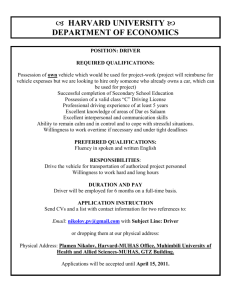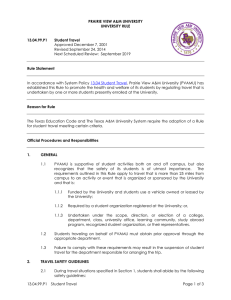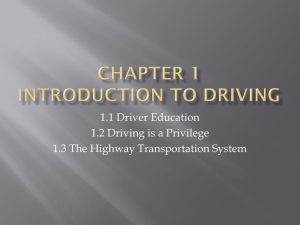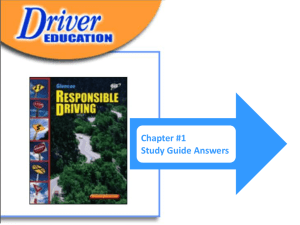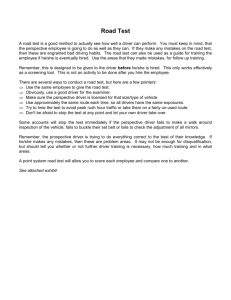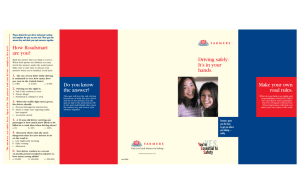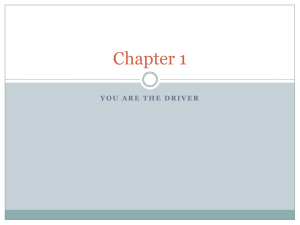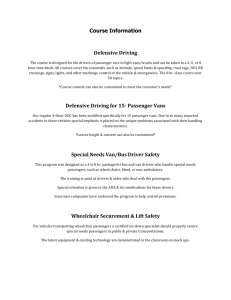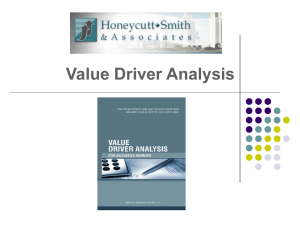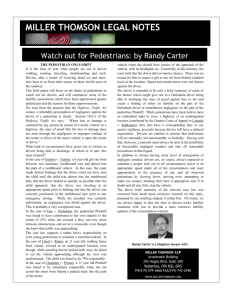Driver Briefing (PPT 4.00 MB)
advertisement
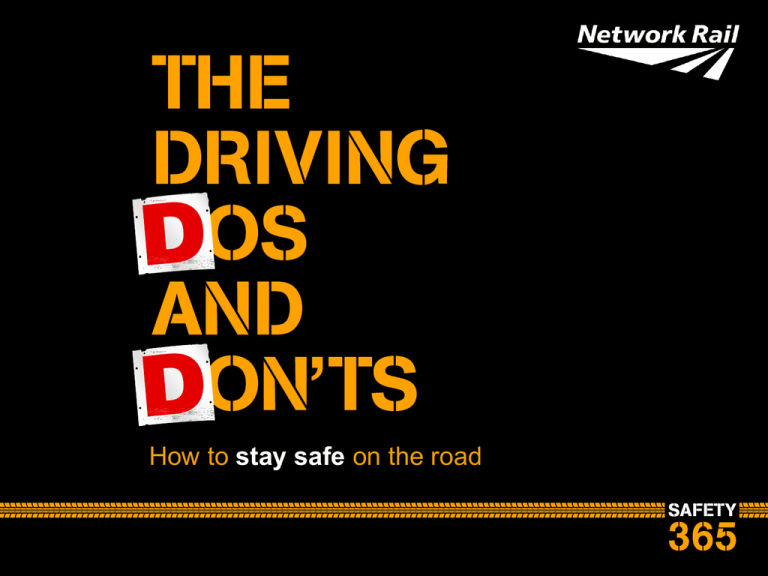
How to stay safe on the road It’s your responsibility • Whether you’re a driver or passenger, you are responsible for your own personal safety • This means: – ensuring vehicles are roadworthy – using seat belts and other safety equipment properly – making sure the driver is fit to drive – driving with care and attention – helping the driver wherever you can • There are 9 deaths everyday on UK roads • 1 in 2 drivers on company business are involved in a collision every year • Safety is not just about drivers – passengers are responsible too • Know the risks and stay safe • Safety is our No.1 priority • Network Rail is committed to the welfare of those who drive to work and those who drive as part of their job • Network Rail has developed a driver coaching scheme – individual driver assessments – training – online learning • Make sure you’re switched on the minute you get into the vehicle • Get enough sleep if you’re driving the next day • Don’t miss breakfast • Stay focused • Remember, it’s not just your welfare that you’re responsible for • Be prepared for all types of weather Tiredness and well-being • It’s obvious, but make sure the driver takes these precautions: – regular breaks. Don’t fight it, stop! – extra care if you are sleeping badly – share the driving • Everyone in the car is responsible – don’t lark around or distract the driver – only ever use a hands-free kit to make or take a call – only take a call if it’s absolutely necessary • Smoking is not permitted in company vehicles Use the safety equipment • Many neck injuries can be avoided if drivers and passengers adjust their head restraints properly • Wear your seat belt, front and back • Ensure all passengers are belted-up too • It’s the drivers responsibility to make sure they follow the rules • The limit is a limit, not a target • 30mph in a 30 zone may be too fast! • Manage your speed according to the weather and road conditions. Stay within the speed limits • Keep your speed down around schools and residential areas • In rural areas, match your speed to the road conditions P Park right • Everyone in the vehicle is responsible for its safety, including passengers • Reverse park as it is safer – always guide the driver back from outside the vehicle. This simple act will reduce the likelihood of an accident • Slow down at access points • Be sensible about where you park the vehicle • Make sure it’s safe and secure at all times To sum up… • There are some simple steps that we can all take to avoid accidents • How many of us would pass our driving test today? • Road safety is as important as track safety • Look out for the ‘Dos and Don’ts’ booklets • If you don’t feel confident, ask your line manager if you can take the driver coaching scheme
